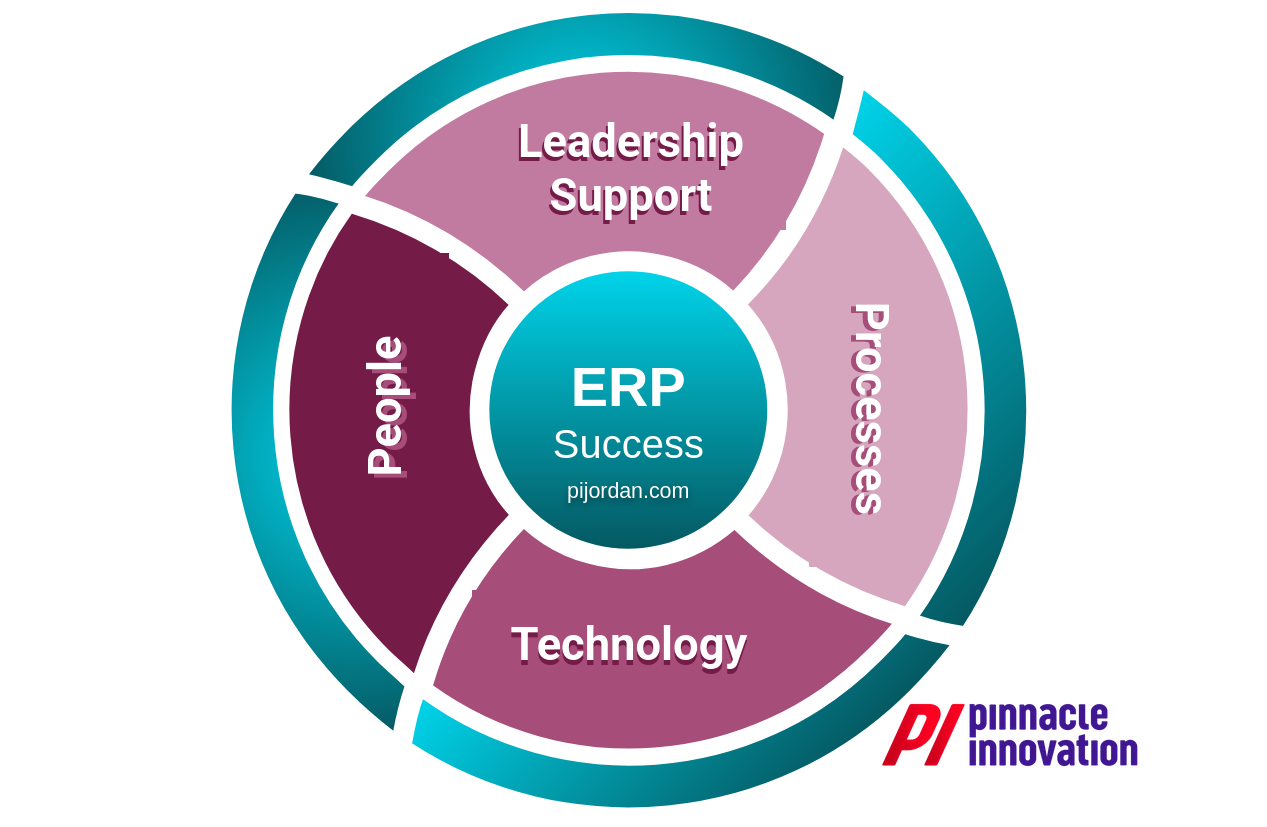Enterprise Resource Planning (ERP) systems are often misunderstood as just another software solution. However, ERP is much more than that—it’s a strategic framework that integrates people, processes, and technology to drive business efficiency. An ERP system is a powerful tool, but like any tool, it requires the right components to function effectively.

www.pijordan.com
For a successful ERP deployment, organizations must ensure all the following pillars are in place:
1. People: The Heart of ERP Success
ERP is called Enterprise Resource Planning for a reason—it requires skilled professionals who understand business processes and can align the system with organizational goals. Without trained personnel, even the best ERP software will underperform. Technology alone cannot ensure ERP success—your people make the difference.
2. Process Optimization
ERP is not a magic fix for broken processes. Companies must first analyze and refine workflows to avoid automating inefficiencies—this is where skilled Business Analysts play a critical role. By mapping current processes, identifying bottlenecks, and designing optimized workflows, #BAs ensure that the ERP system enhances—rather than entrenches—operational flaws. Their expertise bridges the gap between business needs and technical execution, making them indispensable for a successful ERP implementation.
3. Technology: The Right ERP for the business
The right ERP software must align with business needs, and the IT infrastructure must support it. Scalability, security, and integration capabilities are critical. Choosing the right technology is important, but it must work in harmony with people and processes.
4. Top Management Support: The Driving Force
Leadership commitment is the bedrock of ERP success. Executives must actively champion the initiative to secure organizational buy-in, allocate necessary resources (budget, time, and expertise), and ensure the ERP system directly aligns with and enables long-term strategic goals, rather than hindering them.
ERP is a Strategic Enabler, Not Just Software
At its core, ERP is about planning. It’s a tool that empowers employees to make data-driven decisions, optimize resources, and align operations with enterprise goals. But without the right people, processes, and strategy, the software alone cannot deliver transformational results.
If your organization is considering an ERP implementation - or struggling with one - remember that success depends on a holistic approach. Invest in people, refine processes, and ensure leadership alignment. Only then will your ERP system become the powerful engine for growth it was meant to be.
